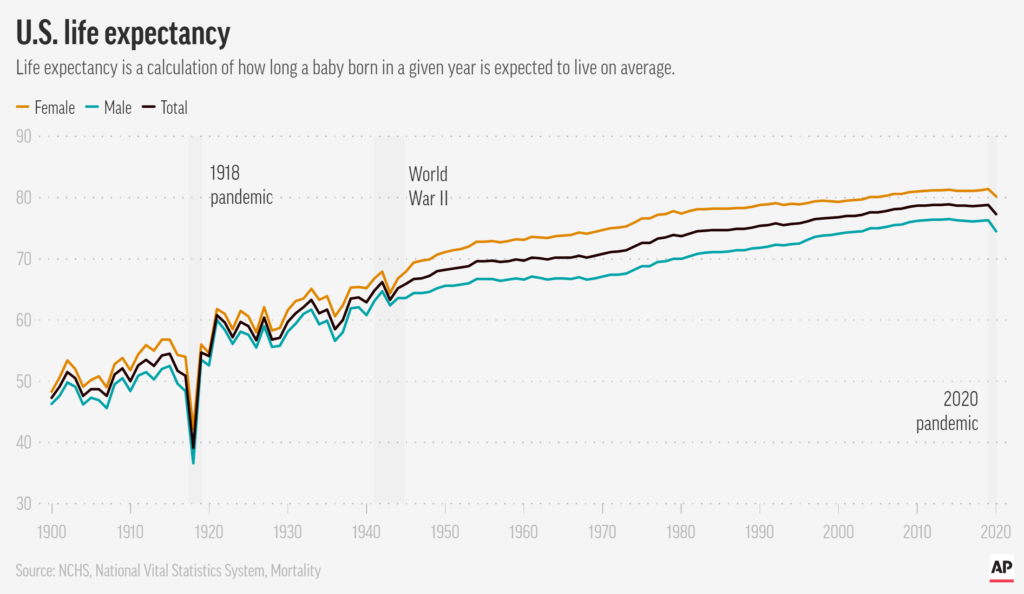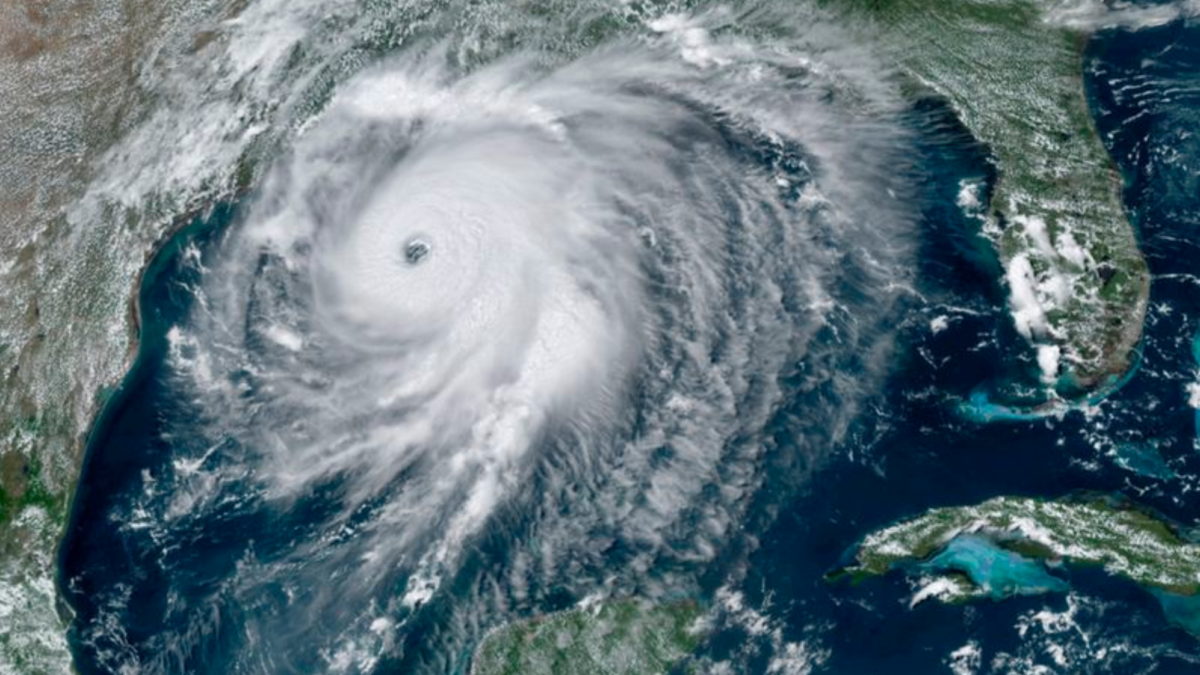U.S. life expectancy in 2020 saw “basically catastrophic” decline, biggest drop since World War Two – “In 2021, we can’t get back to pre-pandemic life expectancy”

By Mike Stobbe
20 July 2021
NEW YORK (AP) – U.S. life expectancy fell by a year and a half in 2020, the largest one-year decline since World War II, public health officials said Wednesday. The decrease for both Black Americans and Hispanic Americans was even worse: three years.
The drop spelled out by the Centers for Disease Control and Prevention is due mainly to the COVID-19 pandemic, which health officials said is responsible for close to 74% of the overall life expectancy decline. More than 3.3 million Americans died last year, far more than any other year in U.S. history, with COVID-19 accounting for about 11% of those deaths.
Black life expectancy has not fallen so much in one year since the mid-1930s, during the Great Depression. Health officials have not tracked Hispanic life expectancy for nearly as long, but the 2020 decline was the largest recorded one-year drop.
The abrupt fall is “basically catastrophic,” said Mark Hayward, a University of Texas sociology professor who studies changes in U.S. mortality.
Killers other than COVID-19 played a role. Drug overdoses pushed life expectancy down, particularly for whites. And rising homicides were a small but significant reason for the decline for Black Americans, said Elizabeth Arias, the report’s lead author.
Other problems affected Black and Hispanic people, including lack of access to quality health care, more crowded living conditions, and a greater share of the population in lower-paying jobs that required them to keep working when the pandemic was at its worst, experts said.
Life expectancy is an estimate of the average number of years a baby born in a given year might expect to live. It’s an important statistical snapshot of a country’s health that can be influenced both by sustained trends such as obesity as well as more temporary threats like pandemics or war that might not endanger those newborns in their lifetimes.
For decades, U.S. life expectancy was on the upswing. But that trend stalled in 2015, for several years, before hitting 78 years, 10 months in 2019. Last year, the CDC said, it dropped to about 77 years, 4 months. […]
Too many people have already died from COVID-19 this year, while variants of the coronavirus are spreading among unvaccinated Americans — many of them younger adults, some experts said.
“We can’t. In 2021, we can’t get back to pre-pandemic” life expectancy, said Noreen Goldman, a Princeton University researcher. [more]
